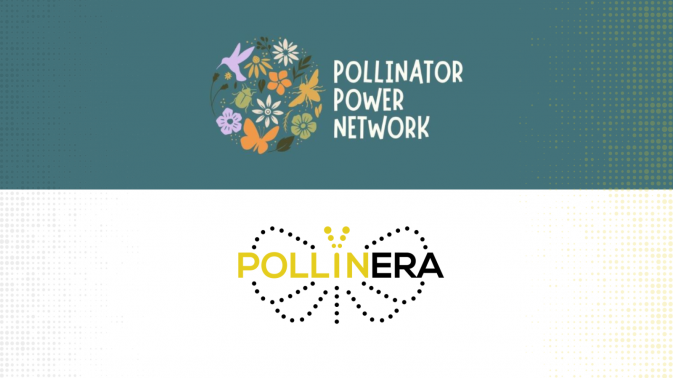PollinERA featured in the Pollinator Power Network newsletter

In May 2024, PollinERA was featured in the Pollinator Power Network’s newsletter, highlighting the project’s efforts to move beyond assessing single pesticides in isolation on honey bees to an ecologically consistent assessment of effects on various insect pollinators.
Currently, research on pesticide effects on pollinators mainly focuses on honeybees, which lack diverse biological and ecological traits and may not accurately represent the broad range of pollinators affected. To address this knowledge gap, PollinERA will unfold in close collaboration with a number of pollinator initiatives. Among these is the Pollinator Power Network (PPN), founded in 2023 by Liah Continentino, an ecologist with a deep passion for pollinators. The initiative aims to spread awareness of pollinators' vital role in our ecosystems, highlighting their severe declines and how this affects plants and animals. The partnership between PollinERA and PPN is an essential step towards enabling policymakers, pesticide users, and citizens to make well-informed decisions.
PPN’s May newsletter series featured Pollinator Project Success Stories, each highlighting different projects supporting pollinators. One of the newsletters presented PollinERA’s mission and main specific objectives.
-
Fill ecotoxicological data gaps to enable realistic predictions of the source and routes of exposure, the impact of pesticides on pollinators, and their sensitivity to individual pesticides and mixtures.
-
Develop and test a co-monitoring scheme for pesticides and pollinators across European cropping systems and landscapes, developing risk indicators and exposure information.
-
Develop models for predicting pesticide toxicological effects on pollinators for chemicals and organisms, improve toxicokinetic/toxicodynamic (TKTD) and population models, and predict environment fate.
-
Develop a population-level systems-based approach to risk and policy assessment that considers multiple stressors and long-term spatiotemporal dynamics at a landscape scale. Then, generate an open database for pollinator/pesticide data and tools.
Apart from PollinERA, the newsletter also featured our sister project, WildPosh, which aims to understand pesticide exposure risks and develop methods for risk assessment.
Read the newsletter here.
Want to learn more? Follow PPN on Facebook and Instagram and subscribe to the newsletter.